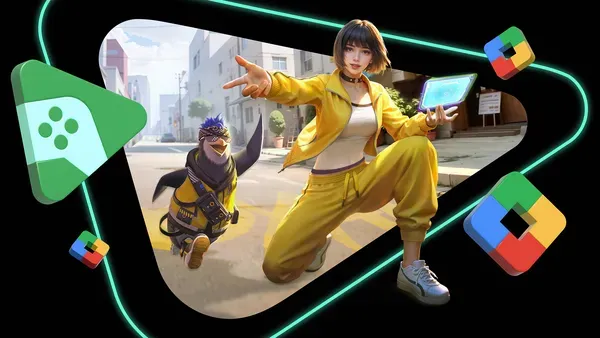Google just fired up its platform gaming strategy with the Free Fire League, partnering with Garena to offer 150 million Play Points to top competitors. The tournament runs through November 23, letting players rack up eliminations across mobile and PC to climb the leaderboards. It's Google's second major league launch after September's Subway Surfers competition, signaling the tech giant's serious push into competitive mobile gaming.
Google isn't just hosting games anymore - it's turning them into competitive battlegrounds. The company just launched its Free Fire League in partnership with Garena, throwing 150 million Play Points at players willing to prove themselves in ranked combat through November 23.
The timing couldn't be more strategic. Mobile gaming revenues hit $95.4 billion globally this year, and Google wants a bigger slice of that competitive pie. "We're excited to announce a partnership with Garena to launch the Free Fire League," Google's Aurash Mahbod announced today, marking the platform's second major league launch since September.
The mechanics are straightforward but ambitious. Every elimination players achieve during ranked matches in Free Fire and Free Fire MAX counts toward their leaderboard score. What makes this interesting is the cross-platform play - whether you're grinding on mobile or switching to PC with Google Play Games, your eliminations stack up regardless of device.
This represents a significant evolution from Google's September announcement when it first outlined its vision for leagues alongside the Subway Surfers League with SYBO Games. That initial launch tested the waters with a more casual audience, but Free Fire brings serious competitive gaming credentials to Google's platform.
Free Fire isn't just another mobile game - it's one of the world's most-played battle royales, with over 1 billion downloads globally. Garena's partnership gives Google access to a massive, highly engaged player base that's already comfortable with competitive gaming mechanics.
The prize structure scales with performance, meaning top leaderboard performers get the biggest chunks of those 150 million Play Points. For context, Play Points convert to Google Play credit, in-app purchases, and other digital rewards - making this a legitimate cash-equivalent competition.












